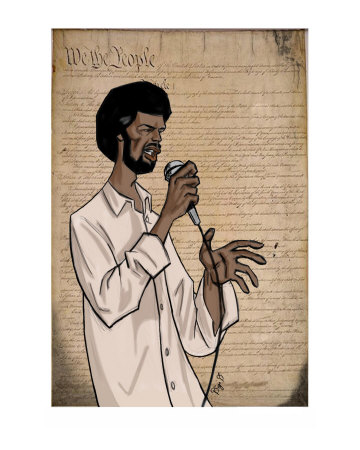So it seems it’s time for a blog. Well to start, I would like to say that I actually have had a bunch of ideas for blogs recently, and so for the sake of making this one not to tedious to read, I am only going to expound on one idea. For a while now, I suppose, I have been trying to piece together the little pieces of humanity that have driven artistic/historical movements thus far. I realize that this is practically everyone’s conquest in life, and it is simply—pretentious of me to write a sentence like that—but for the sake of direction and a unified composition—let’s ride the crest that will define our generation, and what we do henceforth.
I was reading an article yesterday in a publication called (Addbussters). The premise of the magazine is essentially deconstructing typical capitalistic perspective’s, that one might find in a popular American magazine, by the use of imagery that mocks western over consumption, and the shallow materialism of the 21st century. In this magazine they had an article on the succession of events toward post-modern art, music, and literature. What this article was trying to express, other than the non-bias history lesson, was that in order for progressive steps to happen, people need to avoid the post-modern aesthetic for—it has manifested this sick, globalized playground for the rich, at the expense of so many—and in order for us to construct a new aesthetic, we need abandon life as we know it for a new genre, and a new perspective that will be felt in life and expressed through the arts.
Why I have mentioned this (other than I think it is extremely valuable for the survival of expression in the 21st century) is that this class—and the article I just mentioned—have essentially addressed this important question: what is the result of major paradigm shifts, and what have they done to their contemporary’s consciousness. To address this issue in a medium other than the typical examples we have been addressing in class, let us now think about how writing, and the 20th and 21st centuries technological innovations have restructured music. I am not a musician, nor a music scholar, so forgive me those of you who are reading this, who would like to know where my opinion is coming from—it is just simply my perspective. Reading a quick wikkipedia article on the subject of musical notation, and it’s emergence in the world; I found that a written form of music exists in most cultures that also had a written form of their language. Quoting the wiki article, “Al-Kindi (801–873 AD) was the first great theoretician of Arabic music. He proposed adding a fifth string to the 'ud and discussed the cosmological connotations of music”. Wow that sounds like someone we know, here’s a clue: the Magus. Anyway back to my discussion, which will focus on the evolution of music in the European world, and its roots in American music. Music like the visual artwork that was presented in catholic churches, was a means of propaganda of sorts—which really means just people trying to understand devout piousness as a means of making choices with prudence. Medieval scholar’s studying music, like medieval scholars studying writing and memory systems, struggled with an economic and practical way to organize such fleeting information. Along came, “Guido d'Arezzo, an Italian Benedictine monk who lived from 995–1050” who created the earliest form of modern musical notation that would create this notion of a composer. This form of musical notation is now the dominant pervading form of recording music and is (get this) read from right to left, subordinating and encapsulating what was once fleeting.
I got the idea to write this blog from my friend’s dad who is one of the most well renowned professional jazz guitar player’s in New Hampshire. He is also a professor at a University. When I was last home we were talking about music, particularly jazz music and we got on the topic of classical musicians versus jazz musicians. What he told me about composers, and a joke that him and his fellow friends have about them is that—it is more of a just a tribute to the writer, and with in jazz, it is more to the moment and expression to the moment is something that is likely to happen. I feel like this all relates back to let’s see, at least 1 third of what we have been talking about. Writing isolates, jazz stimulates, and in terms of music—it begins to make sense that this music came from a primarily oral culture that had for its education: the streets, the people, religious re interpretation, and most importantly the ability to express anguish rebellion and mental freedom.
And this brings me to the end of my blog. The post-modern music-art industry has been corrupted by a false pretentious aesthetic that is vile, and quickly losing its value. I ask the reader, what kind of culture are we living in that values television shows that embrace snobbery, laziness, and overconsumption.
It is at least this, if not more: it is culture that gets bombarded with a medium of information that is coated in plutocratic ideology; the rich get richer, and the poor get numbed by prescription drugs, alcohol and a dying aesthetic that is on the verge burning out of contemporary existence for ever.
Saturday, April 11, 2009
Subscribe to:
Post Comments (Atom)

No comments:
Post a Comment